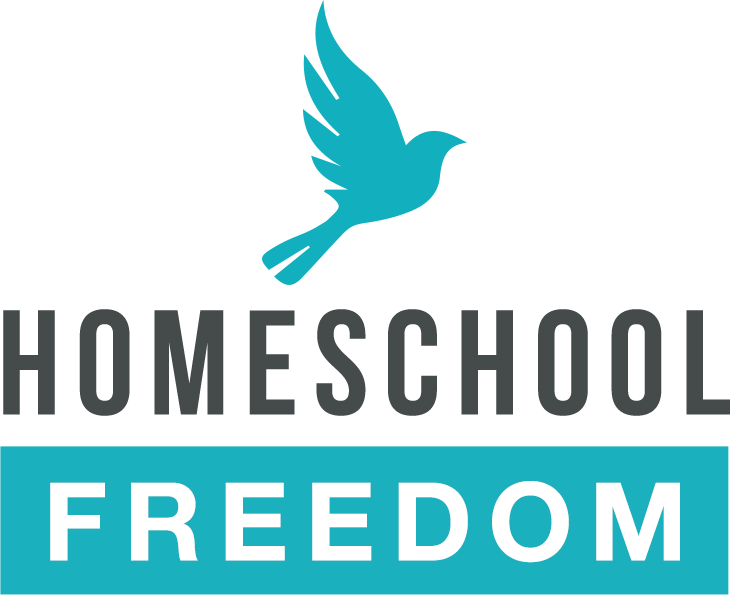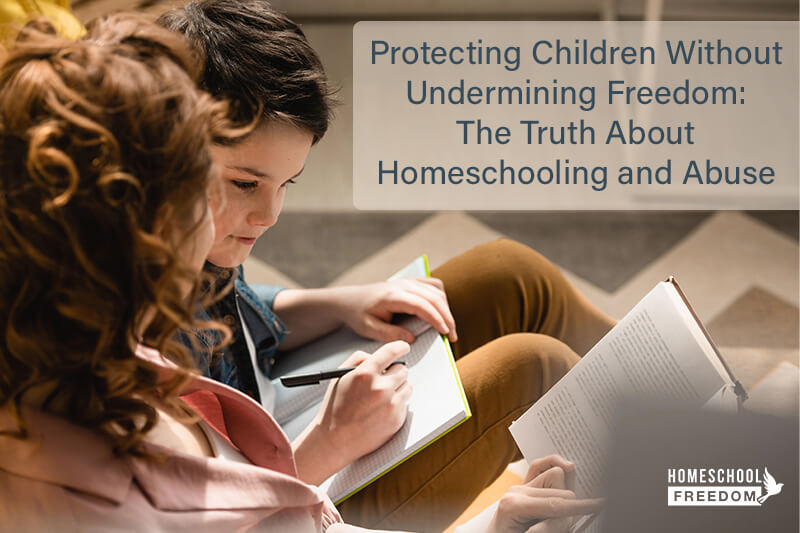by Matthew McDill
This month, another story of child abuse in the home made national headlines. A girl finally escaped from her home and claimed that she had been locked in a dog crate, handcuffed to the toilet, and sexually abused. As Grace C. MacAulay, the Camden County prosecutor expressed, “These are beyond horrific, absolutely abominable acts.” This is a heartbreaking tragedy that we all want to prevent from happening.
The solution most commonly presented is reflected in this New York Times headline: “They Said She Was Homeschooled. She Said She Was Locked in a Dog Crate.” The authors, Sarah Maslin Nir and Rachel Wisniewski, write, “Prosecutors, in part, blame the lax rules around homeschooling — New Jersey is one of many states with little oversight once a child leaves traditional schooling — for perpetuating her suffering.” Many are now claiming that increased government oversight of homeschooling will make children safer.
One of the most vocal proponents of this position is the Coalition for Responsible Home Education (CRHE). In mid-2024, CRHE released the Make Homeschool Safe Act, a comprehensive model bill that proposes parental credential requirements, CPS involvement for families under investigation, mandatory assessments, and proof of immunization. The group claims these measures would prevent abuse and educational neglect.
This year, CRHE’s model legislation found a test case in Illinois. House Bill 2827, titled the Homeschool Education and Accountability Act, mirrors much of CRHE’s model. It includes provisions for an annual notice, teacher qualifications, student portfolio reviews, expanded regulatory authority, and severe penalties. Homeschool leaders and families in Illinois responded swiftly and powerfully. Over 50,000 witness slips were filed, and more than 8,000 people testified in person. As of this writing, the bill is stalled—thanks in part to this overwhelming public opposition and concerns about its constitutionality.
These events raise three essential questions:
- Are homeschooled children at greater risk of abuse than their public school peers?
- Will increasing government oversight of home education actually make children safer?
- Is it justifiable to restrict the parental rights of an entire group because of the misdeeds of a few?
Homeschooled Students Are as Safe as Their Peers—or Safer
With so many news stories framing terrible abuse cases as a homeschooling problem, it can be easy to accept that narrative. However, a growing—though still relatively small—body of research has examined whether homeschool students experience abuse more frequently than their peers. To date, the evidence is clear: homeschooled students are just as safe as those in other educational settings.
In August 2022, Brian D. Ray and M. Danish Shakeel published Demographics Are Predictive of Child Abuse and Neglect but Homeschool Versus Conventional School Is a Non-Issue: Evidence from a Nationally Representative Survey. They draw from “nationally representative data from 1,253 previously homeschooled and conventionally schooled (public and private schools) adults to anonymously report about their abuse and neglect experiences during school age.” They conclude, “We find no clear association between a child’s school sector and his or her experiences of abuse and neglect while growing up. Instead, demographic variables such as family structure, years in foster care, large family size, and household poverty bear a strong relationship with child abuse and neglect.”
Ray conducted a review of “the few extant studies that directly address, in some way, the abuse or neglect of homeschool students,” including data from CRHE. He concluded, “At this point, there is little evidence that public schooled or private schooled children are abused, neglected, or otherwise maltreated at any higher or lower rate than the homeschooled.”
In fact, if there is any correlation between educational setting and risk of abuse, it may suggest that homeschooled children are somewhat safer. Rodger Williams analyzed data from a ten-year period to examine child fatalities resulting from abuse and neglect. He found that “legally homeschooled students are 40% less likely to die by child abuse or neglect than the average student nationally.” Similarly, a nationwide survey of adults revealed that those who were homeschooled reported lower rates of abuse than those who attended conventional schools.
Some may argue that it doesn’t matter how many studies show no higher rates of abuse among homeschool families; what matters is that homeschooled children are not around mandatory reporters all day, making it easier for abuse to go undetected. This line of reasoning leads us to our next important question: Will increasing government oversight of home education actually make children safer?
There Is No Evidence That Regulation Improves Safety
There are several noteworthy aspects of the New Jersey abuse case that must be considered:
- Abuse was already taking place in the home before the children were (allegedly) homeschooled.
- The mother was not actually homeschooling. As Maslin Nir and Wisniewski report, “Spencer told police that she had given up on educating her older daughter after a week. In a police interview, the girl’s younger sister could not recall any lessons being taught.”
- While the younger sister was still in school, a neighbor saw signs of abuse and “called her elementary school to express her concerns. She said she had later been interviewed over the phone by someone from the New Jersey Department of Children and Families, but she never found out what happened next. A spokesperson for the department said it does not comment on cases, citing privacy laws.”
This is not a case of homeschool parents abusing their children—it is a case of abusive parents using homeschooling as a cover for abuse. That concern is understandable and is often at the heart of calls for increased oversight of homeschooling. However, as with many other cases, this is not an example of abusive parents escaping accountability because of lax homeschool regulations. The abuse had already been observed and reported to the state.
A similar situation occurred in Illinois, where the tragic death of Zion Staples was cited as justification for H.B. 2827. Yet, the Staples family had been investigated multiple times over the past decade by the Illinois Department of Children and Family Services. Stricter homeschool regulations would not have prevented this terrible crime. The real question in these instances is why existing child protection systems are not functioning as they should.
Let’s return to the issue of whether more state regulation of homeschooling might reduce abuse. This question has been studied in The Relationship Between the Degree of State Regulation of Homeschooling and the Abuse of Homeschool Children (Students) (Ray, 2018). In the abstract, Ray explains: “The investigation considered the homeschool laws by state and whether they had a relationship to homeschool child abuse. Regression analysis of 18 years of data from all the U.S. states found no relationship between the degree of state control or regulation of homeschooling and the frequency of homeschool abuse.”
More recent studies support this finding. Angela Dills (2022) and Luck et al. (2025) also conclude there is no evidence demonstrating a connection between levels of state regulation and child safety.
If public school students are not experiencing less abuse, then the oversight, regulations, and mandated reporting mechanisms currently in place are not effectively keeping those students safe. Rodger Williams of HomeschoolingBackgrounder.com provides a table tracking the 2023 federal child abuse data. He notes, “Federal child abuse data displays no protective effect as children enter public schools. Abuse rates continue a gradual descent as children get older. There is no visible dip in abuse rates as children cross the line between not being in school to being in school.”
Even if we could demonstrate that increased government regulation of schooling would help keep children safe, we would still need to answer one final question: Is it justifiable to restrict the parental rights of an entire group because of the actions of a few?
Targeting All Homeschooling Families Is Neither Just Nor Constitutional
In the United States, citizens are presumed innocent until proven guilty. Unless there is clear, data-driven evidence that homeschool parents as a group present a notably heightened risk, they should not be subject to greater scrutiny. As we’ve already established, no such evidence exists. Therefore, we must presume their innocence and protect their parental authority.
In a recent article by Jim Mason, president of the Home School Legal Defense Association, addressing proposed homeschool regulation, he reminds us of what the U.S. Supreme Court stated in Parham v. J.R.:
“That some parents ‘may at times be acting against the interests of their children,’ creates a basis for caution, but is hardly a reason to discard wholesale those pages of human experience that teach that parents generally do act in the child’s best interests. The statist notion that governmental power should supersede parental authority in all cases because some parents abuse and neglect children is repugnant to American tradition.”
Homeschooling is a legal expression of parental rights. Requiring all homeschooling families to comply with restrictive measures in the name of preventing abuse is to assume guilt rather than innocence. Instead, we must ensure that existing laws are enforced and that intervention is focused on individual cases where there is substantiated concern.
Conclusion
It is important to acknowledge that many advocates of increased homeschool regulation are motivated by a sincere desire to protect children. Their goal—to prevent abuse—is one we all share. However, the proposed solution of sweeping regulatory oversight risks undermining the rights of all families without effectively targeting those truly at risk. The better path forward is to improve the enforcement of existing child protection laws, ensure appropriate intervention in cases with credible red flags, and preserve the constitutional freedoms of the vast majority of parents who are faithfully educating and nurturing their children at home.
Fortunately, in the case of home education in the U.S., there is no basis for curtailing the freedom of parents to raise and educate their children as they see fit. This is because:
- Homeschooled students are as safe as their peers—or safer.
- There is no evidence that regulations improve safety, and
- Targeting all homeschool families is neither just nor constitutional.


Excellent article, Matthew. Thank you for taking the time to write this well thought out and fact-based argument for parental freedom to homeschool without government oversight.
I’m impressed by the following:
1. Legislators need to be held accountable to consider the evidence as a whole before enacting restrictions on family freedoms. Knee jerk reactions can be emotionally charged and not fact based.
2. Homeschool parents need to be engaged in legislative issues which affect their God-given responsibilities and Constitutional freedoms to train their children in the way they should go. State homeschool organizations help inform homeschool families in their states regarding legislative bills of concern to them. That is a good reason for homeschool families to support their state homeschool support organizations.
This is an excellent article. Thank you for taking the time to research and write it. I am sharing!